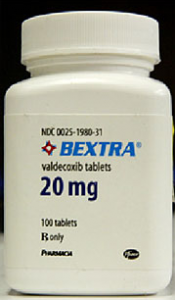Intelligent Healthcare Information Integration 9/4/09
From the Mouths of Babes
Ok, I know this is not directly an HIS tale, but with all the hubbub about healthcare reform here in the US and with healthcare information technology being touted as one of the linchpins to its reformation, I figure this is at least tangentially relevant … plus, maybe a bit of a hoot to boot.
In my office today with a mom and her three rather rambunctious young’uns, I heard perhaps the most brilliant idea for lowering healthcare costs and increasing patient care outcomes that I could imagine. Of course this little jewel didn’t spring from my lips nor those of the other adult in the room. It sprang from the untarnished brilliance of a six-year-old.
As the terrible trio was bouncing around, off, and into every nook and cranny they could find, the middle child, our precocious little thought leader, suddenly and without apparent provocation stated, “You know, if we kids would behave, you could probably charge my mom less money.” Exactly what inspired this nugget of insight to pop from his mouth, I can only conjecture. Regardless, it hit me like a bolt of enlightenment straight out of the Buddha himself.
Absolutely, there are parents I would gladly provide with the daily Blue Light Special if only they would encourage their precious darlings to not crayon my walls, tear my vinyl, rip my books and magazines to smithereens, ram chairs into walls, pull paper towels endlessly from the dispenser, etc., etc., etc. I would undoubtedly save significant wear and tear costs, which I would gladly pass along to healthcare crisis community tills.
Furthering this notion, what if we could charge everyone, adults, kids, and everyone else, a reduced fee for good behavior? You know, things like showing up for scheduled appointments, taking medications as prescribed, making healthier lifestyle choices, and just generally being punctilious. Wouldn’t that help lead to some of the “clinical outcomes management” goals for improving healthcare quality we all seek? Wouldn’t that help lower healthcare costs by bringing about improved health at lower cost? (Prevention versus pound of cure and all that.)
I guarantee you that if I could lower my charges for patients who are “being good”, I would gladly forego the $44,000 in reimbursement bucks; happily buy my next round of server, pen tablets, or EHR tools from my own coffers; and let the ARRA funds go toward building the bridges for data sharing and aggregation we all really need to accomplish something with all this information. Talk about your meaningful use!
"Out of clutter, find simplicity. From discord, find harmony. In the middle of difficulty, lies opportunity." – Albert Einstein

Dr. Gregg Alexander is a grunt-in-the-trenches pediatrician and geek. His personal manifesto home page…er..blog…yeh, that’s it, his blog – and he – can be reached through http://madisonpediatric.com or doc@madisonpediatric.com.




The article about Pediatric Associates in CA has a nugget with a potentially outsized impact: the implication that VFC vaccines…